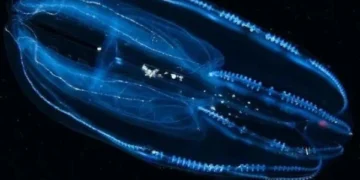Wyoming: In a study, scientists have discovered a protein in the microscopic creature tardigrade that can slow down the process of metabolism in human cells.
The tardigrade (also known as the water bear) is an organism on land that has the ability to survive in the harshest environments.
This organism can survive in completely dry, frozen and extremely hot (temperatures over 150 degrees Celsius) environments as well as in space.
Previous studies have shown that these microscopic creatures (less than half a millimeter in length) can go into a vegetative state to protect their bodies when exposed to extreme environments.
Vegetative state is a state in which the body is apparently awake but the consciousness is asleep.
Now, in a study conducted under the guidance of researchers from the University of Wyoming in the United States, it has been found that these water bears use protein to make a gel inside their cells, which slows down the aging process.
When scientists introduced these proteins into human cells, they found that the molecules clumped together and metabolism slowed down, just like in tardigrades.
The researchers also found that when human cells started making tardigrade proteins, the cells became more resistant to stress.
According to experts, the latest research may lead to the creation of new technologies in the future that can slow down the human aging process.

























